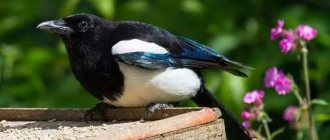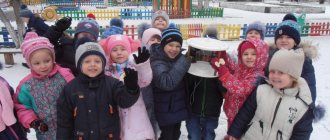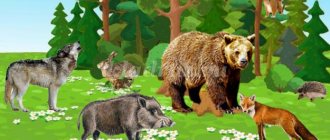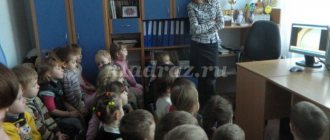Project Project “Birds are our friends” Prepared by: Romadina I.V. Zueva T.V. Zueva T.V. - presentation
Project Project “Birds are our friends” Prepared by: Romadina I.V. Zueva T.V. Zueva T.V.
Problem Why do we call birds ours? Why do we call birds our friends? friends?
Project type Informational Information-practice oriented
Project duration long-term (5 months) long-term (5 months)
Objectives: To consolidate children’s ideas about familiar birds, their lifestyle and behavior, connections with the environment, and the role of humans in the lives of birds.
Objectives 1 Generalize children's knowledge gained from observing birds 2 Develop cognitive interest and curiosity in the process of observing the habits of birds, their method of movement and behavior in flocks.
3 Create a desire to help our winged friends during the winter lack of food. 4 Teach children how to feed them correctly 5 Help them understand that birds need human help. 6 Learn to explain what is observed, that there are certain relationships between birds. 7 Cultivate a thoughtful, conscious, emotional attitude towards the world around us.
Project participants Children of junior and senior preschool age, teachers, parents. Project leaders: educators Romadina I.V. Zueva T.V.
Methodological support Bird watching Study of habits, lifestyle and behavior Conversations (constructive) Excursions to the park
Expected results By watching and helping birds, children will form an emotional attitude towards the natural world, they will learn to be happy, sad, surprised at natural objects. The natural world will become an integral part of every child's world. Children will learn to treat themselves as part of nature. They will learn practical actions to protect nature. Children’s mental abilities develop, which manifest themselves in the ability to analyze and draw conclusions. Children have a desire to communicate with nature and reflect their impressions through various types of activities (creating art production, speech activity, play); they will learn to control their actions and behavior when communicating with nature, so as not to harm it.
Project presentation: multimedia (or wall newspaper release)
Relevance of the project. Careful attitude towards nature, awareness A careful attitude towards nature, awareness of the importance of its protection, the formation of eco-culture and environmental consciousness must be cultivated right now, when the world is on the verge of an environmental disaster. The foundation of ecological culture is reliable knowledge of ecology and practical skills aimed at protecting nature. the importance of its protection, the formation of eco-culture and environmental consciousness must be cultivated right now, when the world is on the verge of an environmental disaster. The foundation of ecological culture is reliable knowledge of ecology and practical skills aimed at protecting nature.
Stages Ι Preparatory stage - Agree with parents to make feeders at home with their children. — Select fiction literature on the topic to read. — Making feeders together with children in kindergarten from waste material
II Project implementation - Theoretical part: drawing up an action plan, developing notes and a scenario for the event. — Practical part: 1 Classes on environmental education of the cognitive cycle 2 Hanging feeders in the kindergarten area and park. 3 Creating a photo album “We and our friends” 4 Making a passport for birds. 5 Joint activities with the CDT 6 Connection with other activities: a) gaming b) productive c) communicative (conversations, reading fiction)
d) educational (speech development, drawing, modeling, appliqué) e) relaxation 3 Homework 3 Homework - Drawing “Bird Cafe” - Making an advertisement for your favorite bird or feeder.
ΙΙΙ Final stage - Presentation of the project (multimedia) or release of a wall newspaper.
Implementation mechanism 1 Creating conditions for the implementation of the project 2 Drawing up an action plan 3 Observation on walks 4 Cognitive activities: drawing, modeling, speech development, appliqué, mathematics. 5 Psycho-gymnastics: depiction of birds with different moods 6 Reading fiction: E. Charushina, V. Bianki and other authors.
7 Excursions to the park. 8 Ecological holidays “Earth Day”, “Feed the birds in winter”. 9 Constructive conversations.
Plan of events Events Dates 1 Making and hanging feeders (children - parents - teachers) November 2 Conversation “The titmouse is small” December 3 Developmental lesson “Where the sparrow dined” December 4 Conversation “Menu for birds” December 5 Observation of the habits and behavior of birds at the feeding trough November – March 6 Excursion to the winter park January
7 Events jointly with the CDT January 8 Advertising production (children - parents) January 9 Observation of bird tracks (learn to determine which bird left the tracks) January 10 Competition for the best drawing "Bird Cafe" (children - parents) February 11 Making a passport for birds ( based on observation results) March 12 Reading fiction on the topic of the project November - March 13 Feeding birds in the kindergarten area (together with parents) November - March 14 Making a photo album (together with parents) March 15 Publishing a wall newspaper about the life of birds and our work November - March



